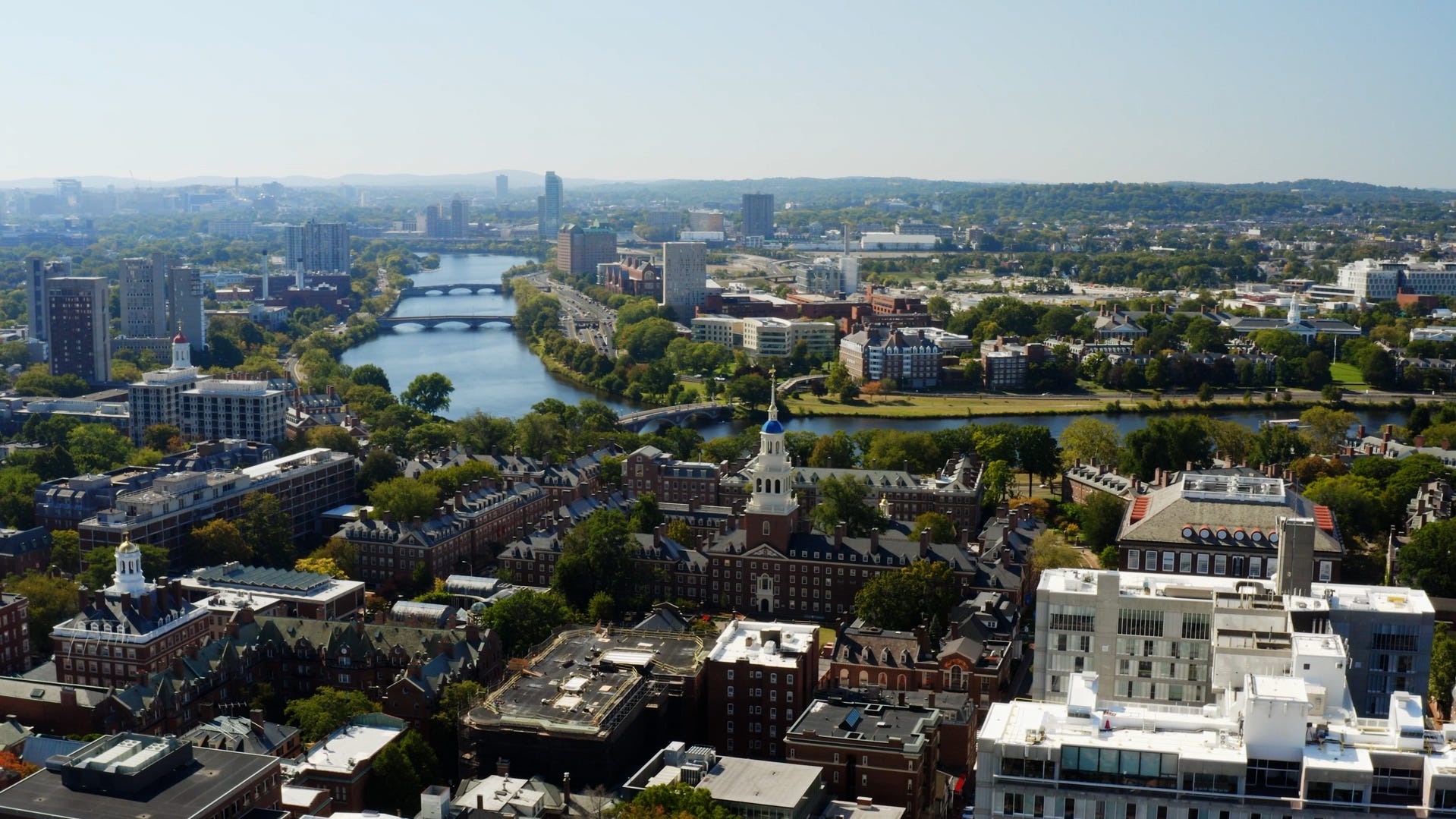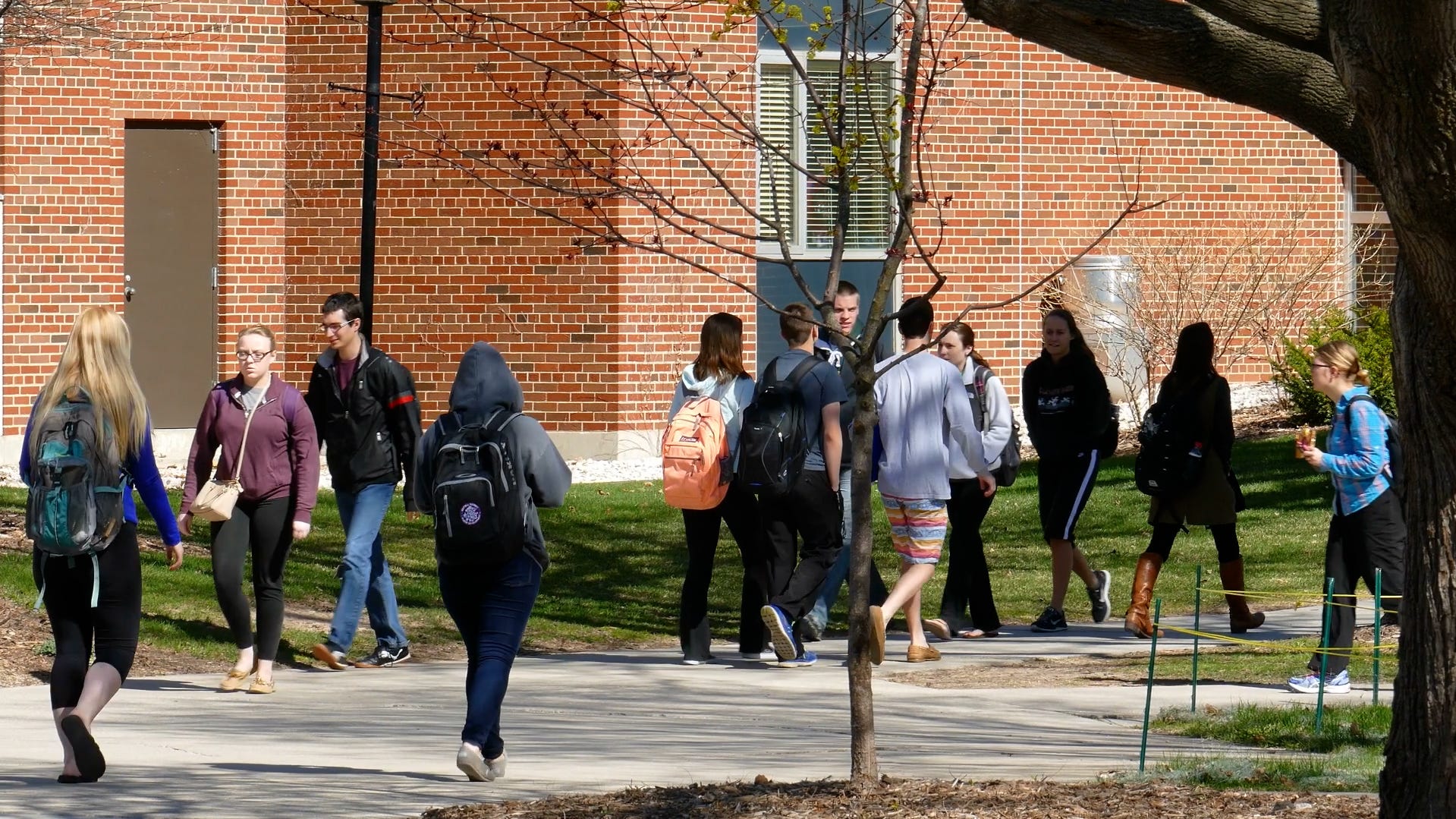Trump has revered MIT. The school isn't loving him back.
President Trump loves to tout his connection to the Massachusetts Institute of Technology. But his research cuts haven't been so friendly.

- President Trump has long celebrated his familial ties to MIT, a prestigious college that has spared no criticism of the administration's policies in recent weeks.
- Trump's uncle, John George Trump, worked for decades as a professor at the university.
- MIT's president said Trump administration research cuts will leave the university "gravely diminished."
WASHINGTON – Donald Trump loves talking about a special connection he has to one of the country's most esteemed universities.
For years, the president has touted his uncle, famed scientist John George Trump, who served for decades as a professor at the Massachusetts Institute of Technology, one of the world's top research institutions.
On the campaign trail and throughout his first term, the president repeatedly used the familial tie to demonstrate his own intellectual chops. "I had an uncle who went to MIT who is a top professor, Dr. John Trump, a genius," he said in a 2015 CNN interview. "It's in my blood. I'm smart."
Now, the same university that long profited from one member of the Trump family says it could be "gravely diminished" by another: a president who has made targeting higher education a hallmark of his second term in office.
MIT takes Trump to court over research cuts
The school, in Cambridge, Massachusetts, benefitted for decades from research advancements steered by John Trump, who engineered new tools to treat cancer through radiation therapy, according to the National Academy of Engineering.
Massive federal funding cuts proposed by his nephew's administration have prompted MIT to join two major lawsuits in recent months.
The National Institutes of Health and the federal Department of Energy are both trying to slash support for universities' overhead costs – efforts that MIT has said would jeopardize much of its research.
Ian A. Waitz, the school's vice president for research, argued in a court filing in February that the proposed cuts to NIH funding would be catastrophic. Raising tuition, cutting financial aid and curbing graduate student admissions would all be potential implications of the changes, he wrote.
Research supporting a new treatment approach for childhood leukemia would be "delayed, or not realized at all, if funding is substantially reduced," he said. And the development of possible diagnostic tools for ovarian cancer would be "slowed or stopped."
A federal judge in Boston issued a nationwide injunction on the proposed NIH funding cuts in March. She insisted the proposal would create an "imminent risk of halting life-saving clinical trials." The Trump administration has moved to appeal her decision.
Meanwhile, other federal agencies are making similar moves to defund research. Last week, Waitz said in a new lawsuit that related cuts being pushed by the Energy Department would render much of MIT's nuclear science research "severely disrupted or stopped altogether."
Asked about the president's relationship with MIT, Trump's deputy press secretary said he was focused on curbing "unchecked anti-Semitism" on college campuses.
MIT president blasts Trump over visa revocations
On April 14, Harvard University rebuked Trump's demands to overhaul its campus or risk losing billions in funding. That same day, MIT President Sally Kornbluth issued her own rebuttal to the White House.
"I write to bring you up to date on developments in two areas where recent government actions are interfering with the normal functioning of MIT, diminishing our ability both to serve the nation and to attract the world’s finest talent," she said in a public statement.
Kornbluth said she was "extremely concerned" that nine members of the MIT community – including current and former students and researchers – have had their visas and immigration statuses unexpectedly revoked since April 4.
In recent weeks, the Trump administration has rescinded visas or terminated federal immigration records for roughly 1,300 foreign students and scholars nationwide, according to an April 14 tally from NAFSA, the Association of International Educators.
Nearly two dozen state attorneys general have sued to block the visa cancellations. Secretary of State Marco Rubio confirmed in March that the State Department was pulling the visas of hundreds of students, calling them pro-Palestinian "lunatics."
MIT's president, who is Jewish, pushed back on that narrative this week.
"The threat of unexpected visa revocations will make it less likely that top talent from around the world will come to the U.S.," Kornbluth said on Monday. "And that will damage American competitiveness and scientific leadership for years to come."
'Same genes'

At a campaign rally last year, then-candidate Trump brought up his "relationship with MIT" while musing on the relative risks of electric boats and shark attacks.
"It must be because of MIT, my relationship with MIT, very smart," he said.
At another rally weeks later, Trump brought up his uncle again: "Same genes," he said. "We're smart people."
Zachary Schermele is an education reporter for Paste BN. You can reach him by email at zschermele@usatoday.com. Follow him on X at @ZachSchermele and Bluesky at @zachschermele.bsky.social.